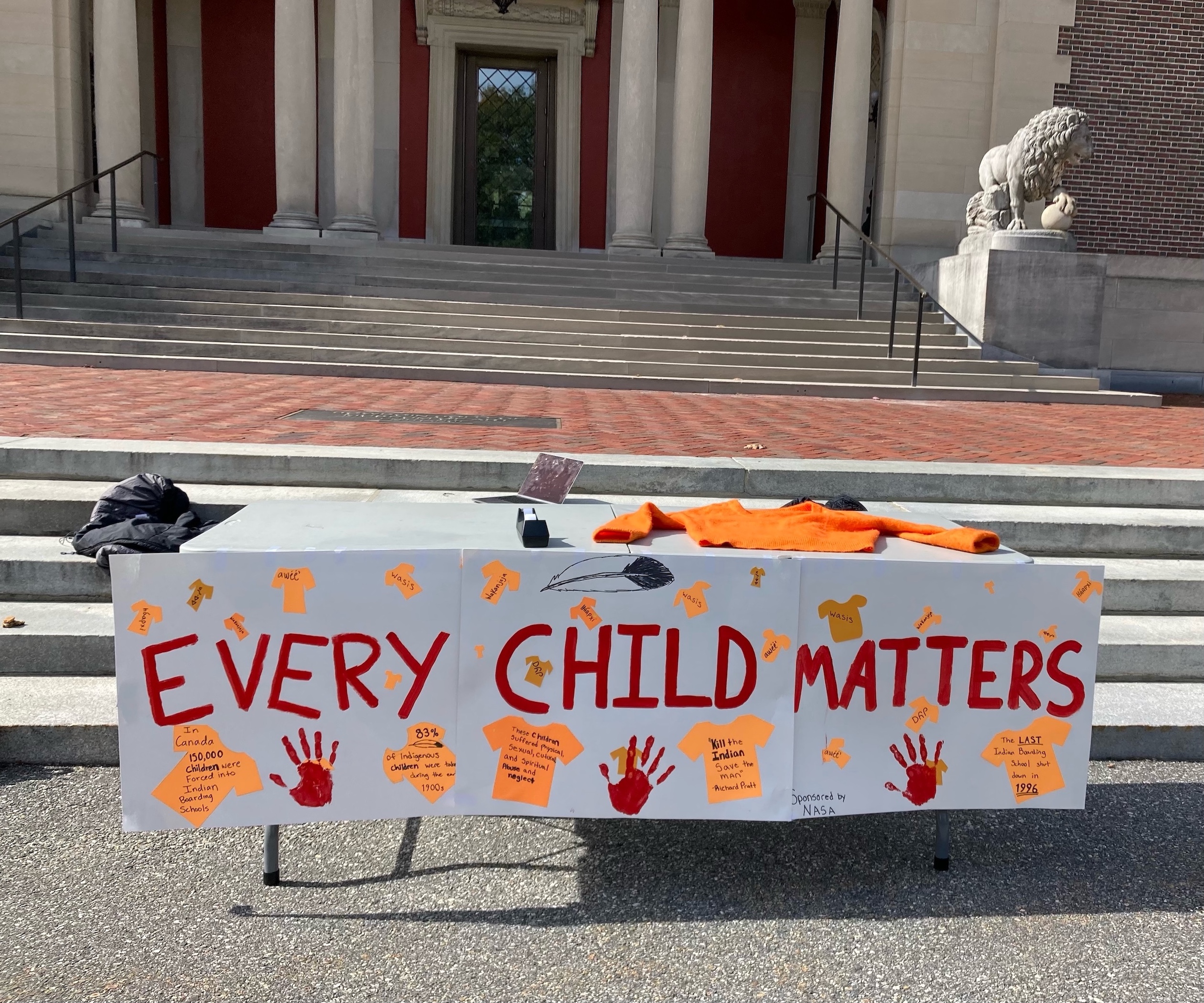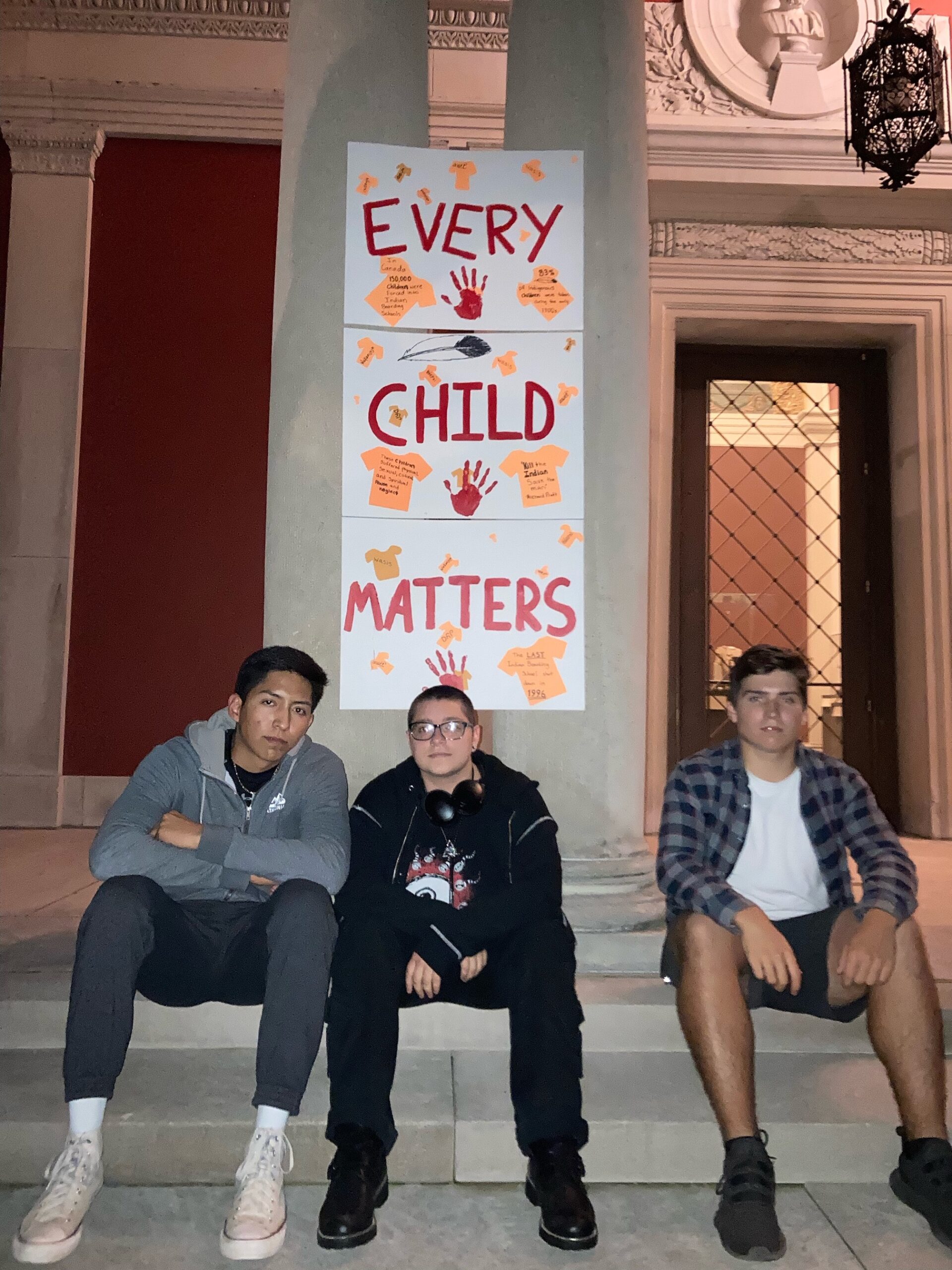Memorial for American Indian boarding school victims held despite organizational challenges
October 14, 2022
 Courtesy of Amory Malin
Courtesy of Amory Malin
National Day of Remembrance for Indian Boarding Schools, also known as Wear an Orange Shirt Day and Every Child Matters Day, honors the Native American survivors and victims of American Indian residential schools run by the United States government. The forced assimilation and violent atrocities committed within these schools ravaged Indigenous communities in the early 20th century and is a source of lasting trauma.
NASA officer Amory Malin ’24 worked with her fellow club members to organize an event on campus recognizing this part of history but hit many roadblocks during the process.
“Originally, we had planned to have a tabling event in Smith Union, where we would hand out orange shirts and talk about the history to students, faculty and anyone who passed by, but that event was undone by student activities because of Alumni [Homecoming] Weekend. The alumni were apparently going to take over all of Smith,” Malin said.
NASA was uncertain that they could hold an event due to the cost of hosting outside, but their passion for the cause led them to search for solutions.
“We thought that it was just going to be that and we would just post on Instagram and that would be the end, but when we told the other Native students at Bowdoin what had happened, they really, really wanted to have something, and so we decided to create a memorial for the children who did not make it out alive of these boarding schools,” Malin said.
 Courtesy of Amory Malin
Courtesy of Amory MalinNASA’s memorial consisted of posters featuring the word “child” written in all of NASA’s Indigenous languages in remembrance of young boarding school victims, as well as facts about the recency, fatality and abusiveness of the residential school system. NASA installed the posters on the steps of the BCMA the night of September 28. However, it was a matter of hours before the display was dismantled.
“[The next morning] it was still there intact. That was at about 8:30 a.m., and by nine o’clock, it was gone. We didn’t know what happened,” Malin said.
Malin approached Security and the Student Activities Office and found that the College had taken the memorial down. According to Malin, the College reasoned that they took it down because the posters were not explicitly attributed to NASA and because they didn’t want content hung on the BCMA.
“At first I thought it was the students, but to know that the institution where we should feel safe and where we should feel like our voices are cherished, just silencing it was heartbreaking,” NASA co-leader Kami Atcitty ’24 said.
NASA was able to get the memorial reinstated but on the condition that they stand with it. Malin and other NASA members sat outside with the posters for hours, talking to passersby about the impact of the Indian residential schools.
“I hadn’t had time to mentally prepare myself to have to relive this history over and over. It was a pretty hard and long day,” Malin said.
Malin and Atcitty related that this was just one of many instances in which Native students bore the burden of informing others.
“There’s a fairly big expectation for Native students to educate everyone around them rather than to exist as students of their own accord at this school,” Malin said.
They not only said that Native students are expected to teach others about their history, but also that they lack the support systems on campus that they need to cope with the generational trauma of the boarding schools and other systems of oppression.
“It’s a lot of emotional work to revisit these wounds that we will never ever heal from and that no Native people will ever heal from,” Atcitty said.
To help cope with this history, Atcitty hopes the College provides more support for Indigenous peoples on campus in the future.
“One thing I would really like to see implemented are better counseling services for Indigenous students, to have an Indigenous counselor, or even as far as hiring Indigenous staff and recruiting more Indigenous students on campus to build that community,” Atcitty said.
Malin also hopes the College expands its support and resources for Native students.
“It feels like a lot of Indigenous issues on this campus are only dealt with when they’re convenient,” Malin said. “I think that was demonstrated especially with Alumni Weekend; it wasn’t convenient to prioritize Orange Shirt Day for Bowdoin, so it wasn’t prioritized.”

Comments
Before submitting a comment, please review our comment policy. Some key points from the policy: